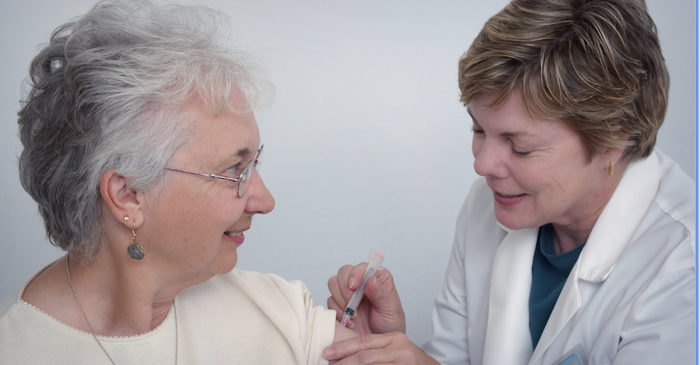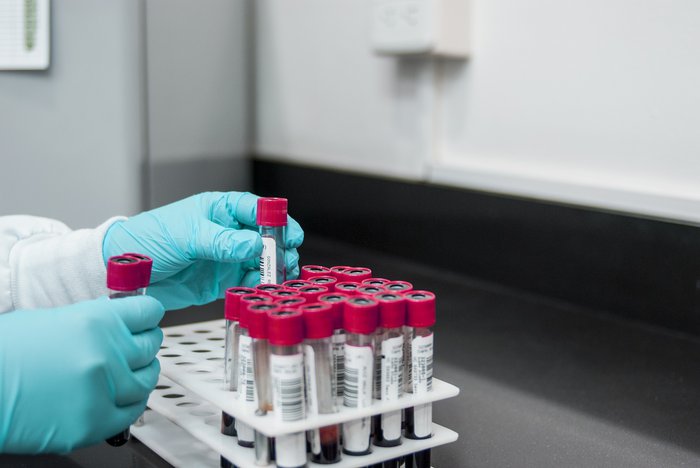Five things we learned about blood cancer services from the Cancer Patient Experience Survey
Every year, NHS England asks thousands of cancer patients in England about their experiences. We've picked out five key things we think the NHS and Government should be focusing on, which we believe would save a significant number of lives.
Every year, NHS England publishes the Cancer Patient Experience Survey, in which thousands of cancer patients in England answer questions about their experience of having cancer.
It’s the best snapshot we have of what people with cancer think about how the NHS treats them, and it allows us to see how the experiences of people with blood cancer compares to those of people with other types of cancer. We can also look at how experiences vary across England, and whether things are getting better or worse.
This year’s survey has just been published (the data is from 2021), and we’ve picked out the five key things we think it tells us about what the NHS and Government should be focusing on. Addressing these things would, we believe, save a significant number of lives.
1) Too many people with blood cancer aren’t diagnosed quickly enough

The quicker people with blood cancer are diagnosed, the better their chances of surviving. Yet since 2015, the survey has consistently showed that a high proportion of people with blood cancer need to have multiple GP appointment before being diagnosed.
This year is no different – the results show that a shocking 30.7% of people with blood cancer saw their GP three or more times before being diagnosed. This is much higher than for prostate cancer (16.7%); lung cancer (23.7%); or breast cancer (6.6%). And the situation is particularly bad for people with myeloma, with 39.6% of them having three or more GP visits before being diagnosed.
This is almost certainly leading to deaths that could have been avoided if people were diagnosed promptly.
It’s true that blood cancer symptoms can be quite vague – things like sweating, unexplained weight loss, or persistent infections – but given the Government’s commitment to improving cancer diagnosis, it is disappointing that there has been a lack of progress on this.
In 2015, 28.7% of people with blood cancer saw their GP three or more times before being diagnosed – the fact that we’ve known about this issue for some time and yet have failed to make progress is simply not good enough.
The NHS could and should be giving GPs more support both to be able to identify symptoms that may be blood cancer (or at least that they may be a sign of something serious) and to have better access to the tests needed to diagnose blood cancer.
2) Too many people with blood cancer aren’t seeking medical attention quickly enough

GPs being better able to identify potential blood cancer cases is an important part of improving diagnosis. But we also need to ensure people with blood cancer go to their GP to get their symptoms checked, and too often this is not happening quickly enough.
The survey shows that 15.6% of people with blood cancer waited at least three months between first thinking something might be wrong with them and seeking medical attention. Again, the situation is worse for myeloma, with almost one in 20 people (4.7%) waiting over a year before going to their GP.
These delays are very likely to be resulting in unnecessary deaths, and we need to do more to raise awareness of blood cancer symptoms, and of the importance of getting them checked quickly.
3) We need to improve the way people are diagnosed with blood cancer

For years, the survey has consistently showed that people with blood cancer are less likely than people with other types of cancer to leave their diagnosis fully understanding what is wrong with them.
These latest results are more of the same, with just 67.8% of people with blood cancer saying it explained to them in a way they could completely understand, which is lower than for other common cancers. And for myeloma, this was just 63%.
In one way, this is understandable – for many people, it’s easier to visualise a tumour in a particular part of their body than something being wrong with your blood. But rather than meaning it is inevitable that lots of people will leave their diagnosis not fully understanding it, doctors should spend more time explaining it as part of a diagnosis.
So given we’ve known about this problem for some time, it’s disappointing there has not been more progress in fixing it.
The survey also showed that 70.7% said they were definitely told about their cancer in a sensitive way, and 6% said they weren’t told in a sensitive way.
Six per cent may sound small, but a blood cancer diagnosis can be one of the most traumatic conversations people with blood cancer ever have. Sadly, we know lots of people with blood cancer whose memory of being told in an insensitive way that they had blood cancer is one that stays with them for the rest of their lives.
4) Too few people are being offered the chance to take part in research

The survey shows that for one in three people with blood cancer (34%), someone had had a conversation with them about opportunities for taking part in research.
In one way, this is good news, as it is much higher than the cancer average of 26.2%. But that still means two in every three people with blood cancer aren’t having this conversation. And there is also variation within blood cancer. For leukaemia and myeloma, well over one in three people are having a conversation about research, but just a quarter of people with lymphoma are having these conversations.
The survey also makes clear that people’s chances of someone talking to them about research depends on where they’re being treated. Over 70% of patients in some hospital trusts said someone had spoken to them about research, but in other hospital trusts it was under 20%.
Given that opportunities to take part in research can be literally lifesaving, this stark difference means many people with blood cancer are less likely to survive just because of where they live.
Not everyone is getting the information they need about the risk of their cancer coming back

It’s important that, where relevant, people with blood cancer are given information about the likelihood of their cancer returning, what to look out for, and what to do if they have concerns – a good understanding of this can mean the difference between life and death.
People with blood cancer are more likely to be given this information than people with other types of cancer. But there are still significant numbers of people who aren’t – the survey shows that 13.6% of people were given some information on this but would have liked more, and a further 8.9% weren’t given information on this but thought they should have been.
The proportion of people not getting the information they need is also higher in people with lymphoma than for people with either leukaemia or myeloma.
It’s important the NHS ensures everyone with cancer gets this potentially lifesaving information.
Sign up to our mailing list...
...and keep up to date on how we're improving the situation for people with blood cancer.
We will keep you updated about our work and the ways you can help, including campaigns and events. We promise to respect your privacy and we will never sell or swap your details.
